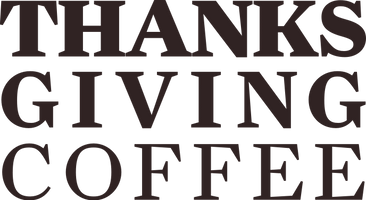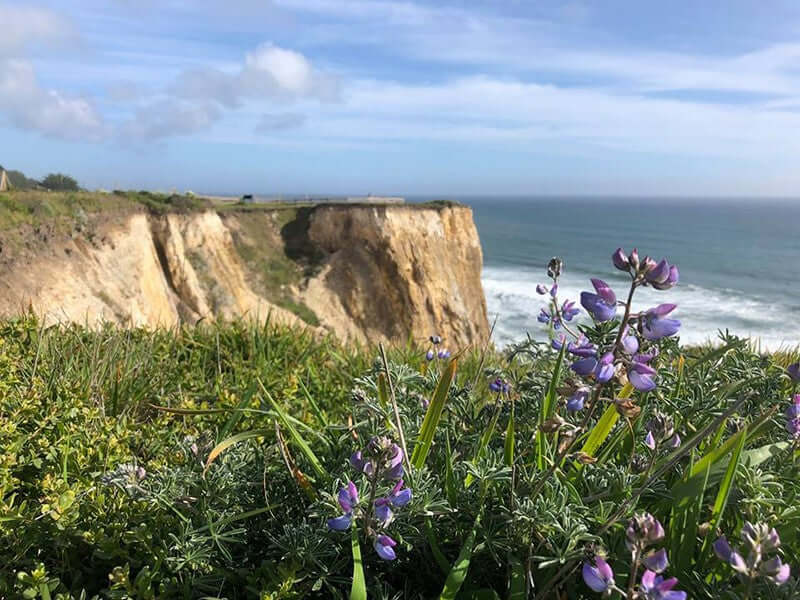
Our Blog
National Trails Day at Pelican Bluffs
View BY :
National Trails Day at Pelican Bluffs
National Trails Day – The First Saturday of June
Pelican Bluffs Trail Work Day: June 2, 2018 from 10am-12pm
hosted by the Mendocino Land Trust
A mile south of the town of Point Arena, a beautiful new addition to the California Coastal trail has been created at the 70 acre Pelican Bluffs Preserve. Owned and maintained by the Mendocino Land Trust, this epic landscape is free and open for the public to enjoy. Because the Land Trust is not funded by taxes like other parks, the work and energy it takes to maintain open spaces is a burden carried by community members, whether through monetary donations or ‘sweat equity’. Over the past year, volunteers from near and far, in addition to service organizations like the California Conservation Corps, have all come together to build over two miles of trail along this breathtaking blufftop.
From the parking lot, the newly completed loop trail leads visitors up through a coastal prairie that climbs to a crested hill. At the top, the wide expanse of Pelican Bluffs is revealed. Wildflowers speckle the bluff top, while dramatic white cliffs drop away to the rocky beach below. The sound of the waves tumbling over the shore and the smell of the ocean breeze is a feast for all senses. Continue to follow the trail along the coast and you might see seals resting on the beach and whales spouting in the distance, while an osprey soars overhead. Home to Peregrine falcons and the endangered Point Arena Mountain Beaver, Pelican Bluffs is a beautiful place for people and wildlife in equal measure.
This National Trails Day, spend some time helping to take care of the trails and the wild places you love. It’s time well spent, and always worth the effort.
Mendocino Land Trust and Thanksgiving Coffee Company
Thanksgiving Coffee and the Mendocino Land Trust have collaborated to create Fog Dodger, a Cause Coffee benefiting the MLT and their efforts building trails all over our county.
Recommended Reading
Back to the Blog-
![B Corp Coffee Partnerships: How Conscious Collaboration Drives Environmental Impact]()
B Corp Coffee Partnerships: Conscious Collaboration
Every first Saturday in July, thousands of people gather at Fort Bragg’s Noyo Harbor for the World's Largest Salmon BBQ—a celebration that’s both festive and fiercely focused on restoration. It's a paradox we embrace: honoring nature by gathering in its name.
This spirit of collective care mirrors how Thanksgiving Coffee approaches sustainable business relationships—especially through our growing network of fellow B Corps.
Grove Collaboratives First B Corp Coffee
When Grove Collaborative chose Thanksgiving Coffee as their very first coffee partner, it marked a significant milestone in our 50+ year journey since founding Thanksgiving Coffee in 1972.
This wasn't just another retail partnership—it represented Grove's recognition of our commitment to ethical coffee sourcing and regenerative business practices.
Grove features our coffee with the tagline: "This bag carries more than artisan coffee—it's a vessel of hope, connection, and giving thanks to the Earth." This partnership demonstrates how aligned values create natural B Corp collaborations that extend far beyond traditional business transactions.
Brewing Local Impact with North Coast Brewing Company
North Coast Brewing Company, our neighbor in Fort Bragg, has been independent since 1988. They have built their reputation on quality craft brewing while maintaining strong community ties.
At the 2024 World's Largest Salmon BBQ, their craft beer complemented our artisan coffee, creating a complete North Coast experience that spotlighted the power of place-based partnership.
Raising the Bar with Bonterra Organic Estates
Our partnership with Bonterra Organic Estates, America's #1 organic winery, represents the gold standard of regenerative agriculture collaboration. They've achieved Regenerative Organic Certification, TRUE Zero Waste status, and B Corp certification—proving that excellence and environmental stewardship flourish together.
Salmon Restoration Through Conscious Commerce
The World's Largest Salmon BBQ demonstrates how conscious business partnerships create measurable environmental impact.
Here are the 2024 Results:
- $60,000 raised for salmon restoration
- $40,000 donated to Trout Unlimited's North Coast Coho Project
- 2,500 attendees supporting sustainable practices
According to the National Oceanic and Atmospheric Administration, these restoration efforts have resulted in over 15,000 adult coho salmon returning to spawn in Mendocino Coast rivers—in waters that hadn't seen coho salmon for 70 years.
Building Systems Evolution
For over 50 years, Thanksgiving Coffee has operated on the principle that coffee is a medium for connection and positive change. Our B Corp partnerships have shown us how this philosophy extends beyond our coffee supply chain to encompass the entire ecosystem of conscious commerce.
When North Coast Brewing brings their craft beer to the Salmon BBQ, when Bonterra contributes their organic wines, when Grove Collaborative features our coffee as a vessel of hope—we create something none of us could achieve alone.
We're not just selling products; we're building a network of businesses that demonstrate another way forward.
The Ripple Effects of Regenerative Partnerships
The numbers tell part of our story, but the deeper narrative is about amplified impact. Every cup of Thanksgiving Coffee that reaches Grove's customers, every moment of connection at the Salmon BBQ, every dollar raised for stream restoration—these represent the ripple effects of partnerships that prioritize shared prosperity over individual gain.
Looking Ahead: A Business Practice of Care
These partnerships didn't emerge from market analysis—they grew from shared values and mutual recognition of what's possible when businesses align their success with the world's wellbeing. Grove chose us because our story resonates with their mission. North Coast Brewing and Bonterra partner with us because we share commitment to place and values.
Together, we create impact greater than the sum of our parts. We've learned that the company we keep shapes not just our success, but our contribution to a more sustainable world. In choosing B Corp partners who share our commitment to restoration and regeneration, we've proven that business can be a practice of care—for the earth, communities, and the future we're creating together.
Lavender Grace is the Sustainability Consultant for Thanksgiving Coffee Company
eventsB Corp Coffee Partnerships: How Conscious Collaboration Drives Environmental Impact
read more -
![Earth Day Event in Fort Bragg 2024]()
Earth Day Event in Fort Bragg
The Noyo Food Forest is having their annual Earth Day celebration this Saturday at the Learning Garden. This four hour event is a fundraiser for the Farm-to-School and Youth Intern programs that the Noyo Food Forest operates year-round. We partner with the Noyo Food Forest throughout the year, and we especially love being a part of this annual event in Fort Bragg.
15th Annual Earth Day Event
Saturday, April 20, 12 - 4 PM
At the Learning Garden at Fort Bragg High School on Dana Street.This Earth Day event is free and geared toward everyone in the family. There will be live music, and you can participate by putting down a bid for the silent auction, paying entry to bouncy houses, and tasting goodies from local chefs. This is one of the most fun events that happens in the city of Fort Bragg every year. Local organizations and nonprofits are a big part of this event, and you’ll see booths and representatives from the Noyo Marine Science Center, the Mendocino Land Trust, our Mendocino County state parks and many more important parts of the coastal community.
Thanksgiving Coffee will be serving up samples of our Bee Bold Blend, our new Nitro Coffee, and the Noyo Food Forest will be selling 12oz bags, as well. All the proceeds benefit the Noyo Food Forest and their important work here in our community. We are very happy to be a part of this awesome event. For more information, visit the Noyo Food Forest Earth Day page on their website, and RSVP on Facebook to share with your friends. Join us on April 20 – see you at the Learning Garden.
Thanksgiving Coffee Company
Partnership with the Noyo Food ForestLearn more about how we support our Mother Earth
bee boldEarth Day Event in Fort Bragg 2024
read more -
![Simplifying to Serve You Better: A New Chapter in Our Coffee Journey]()
Simplifying to Serve You
The coffee landscape is dramatically different than it was when we began this journey 53 years ago.
In those early days, we built our lineup coffee by coffee — adding blends and single origins as new beans became available and relationships grew. For decades, harvests were plentiful and sourcing was straightforward.
Today, the world of coffee is evolving. Climate shifts, supply chain realities, and changing customer preferences mean we need to be as thoughtful and resourceful as possible to keep doing what we do best: bringing you exceptional coffee with integrity.
Change for the Better
We're streamlining our packaged coffee offerings, starting in September. With a simplified lineup of coffees, we'll focus on the blends and origins we can source consistently, roast with excellence, and deliver to you at the highest possible quality.
By simplifying our offerings, we will:
- Deepen our support for the farmers we work with through more focused purchasing.
- Maintain freshness and quality in every cup we roast.
- Stay nimble in a changing coffee landscape, so we can continue being your favorite coffee company for years to come.
What This Means For You
We know change isn’t always easy — especially when it means saying goodbye to a favorite. But change also creates space for something new.
- Nearly every retiring coffee has a suggested alternative: matched for flavor, roast level, and story.
- All coffees will remain listed on our website, so you can easily find info about alternatives or select a bulk purchase option.
- Cause Coffees: For special details on replacements and recommendations, visit our Cause Coffee page.
- Bulk options: Many coffees will still be available in 5 lb bags, even if they’re not sold in retail-size packaging. We’re happy to share our best practices for keeping coffee fresh in larger quantities.
Find Your Next Favorite Cup
We know you might be wondering, “What will replace my favorite?”
Here’s the list of our retiring coffees with the roasts we recommend in their place — each one carefully matched for flavor, roast, and story.
- ⏳ Albion River Inn Blend → Try Paul’s Blend
- ⏳ Beaujolais Blend → Try Old Town French
- ⏳ Costa Rica → Try Peru
- ⏳ Delicious Peace Dark → Try Mendocino Vienna
- ⏳Delicious Peace Medium → Try Rwanda
- ⏳ Guatemala → Try Song Bird Guatemalan
- ⏳ Hazelnut → Available in 5lb bag
- ⏳ MacCallum House Blend → Try Beaujolais FTO
- ⏳ Mocha Java FTO → Try Mocha Java Classic
- ⏳ Nicaragua → Try Song Bird Nicaragua
- ⏳ Vienna → Try Mendocino Vienna
- ⏳For Cause Coffees →See Cause Coffee Guide
Our Commitment Remains the Same
For over five decades, we’ve been devoted to ethically sourced, artisan roasted coffee — and that will never change. Every decision we make is rooted in our mission:
- Source with integrity
- Roast with care
- Honor the stories behind every coffee bean
Thank you for growing with us, embracing new favorites, and sharing our belief that coffee is more than a drink. It's a daily connection to people, to our planet, and our sense of purpose.
With gratitude since 1972,
The Thanksgiving Coffee Team
You might be interested in...
Sold outSold outSold out
Lavender Grace is the sustainability consultant for Thanksgiving Coffee Company
from-the-roasterySimplifying to Serve You Better: A New Chapter in Our Coffee Journey
read more -
![Rwanda Resilience in Every Cup: Coffee with a Climate Impact]()
Taste the Bright Future of Coffee
Our Rwanda Single Origin offers more than just incredible flavor—it’s a coffee that supports community resilience. Grown at high elevations in Musasa, Rwanda, by the Dukunde Kawa Cooperative.This medium roast delivers:- Tasting Notes: Vibrant citrus, delicate florals, and a smooth honey finish
- Mouthfeel: Silky and refreshing, with a bright, clean finish
- Perfect for: Pour over, drip, or French press—ideal for your morning clarity ritual
Rwanda Single Origin Coffee with citrus, floral, and honey tasting notes from Dukunde Kawa.
Why Dukunde Kawa Coffee Matters
Dukunde Kawa means “Let’s love coffee”—a name that reflects their commitment to people, planet, and flavor. This Rwandan cooperative is internationally recognized for combining exceptional quality with climate action.
Here's what climate resilience in action looks like:- 2,500+ clean cook stoves installed, reducing wood use by 70%
- Tree nurseries restoring biodiversity and combating soil erosion
- Women’s leadership with 80% women participation at the Ruli washing station
Every bag of Rwanda Single Origin supports these impactful programs, making every cup an act of regeneration and reciprocity.
Sources: Dukunde Kawa Sustainability Programs and Thanksgiving Coffee Dukunde Kawa Story
Rwanda Coffee Farm
Brew a Better Morning, Support a Better Future
Every time you brew Rwanda Single Origin, you:- Support healthier homes with clean cook stove initiatives
- Restore forests and farms through reforestation efforts
- Empower women farmers, nurturing local leadership
Recipe: Cold Brew for Summer Brightness
Show off the bright notes of Rwanda Single Origin with this easy cold brew:- Coarse grind 1 cup of beans
- Steep in 4 cups of filtered water for 12-14 hours
- Serve over ice with a twist of fresh orange peel
Refreshing, vibrant, and perfect for a summer coffee ritual.
Explore More Flavor Stories
Lavender Grace is the Sustainable Ecology Advocate for Thanksgiving Coffee Company
From the RoasteryRwanda Resilience in Every Cup: Coffee with a Climate Impact
read more -
![Women Powering Change: SOPPEXCCA's Revolutionary Approach to Economic Justice in Coffee]()
The Story Of SOPPEXCCA: Empowerment Through Coffee
In the verdant highlands of Jinotega, Nicaragua, a revolutionary approach to gender equity is transforming the coffee industry. Led by the visionary Fátima Ismael, SOPPEXCCA cooperative operates on a powerful belief: "Women's independence can only be achieved through economic autonomy and awareness."
"This groundbreaking initiative doesn't just produce exceptional coffee – it creates a model for sustainable economic justice." – Thanksgiving Coffee Company
What makes this partnership unique is SOPPEXCCA's pioneering recognition of women's traditionally invisible contributions to coffee production. This approach addresses a global challenge documented extensively by international organizations including the United Nations.
Fátima Ismael, SOPPEXCCA'S General Manager
The $40,000 Unpaid Work Fund: Valuing Invisible Labor
Since 2013, Thanksgiving Coffee Company has committed an additional $0.10 per pound of green coffee purchased from SOPPEXCCA – specifically allocated to recognize women's unpaid work. This initiative has now generated over $40,000 supporting women's economic empowerment.
The Global Context of Unpaid Labor
According to UN Women research:
- Unpaid care work is essential to functioning economies but often goes uncounted and unrecognized
- Women—particularly from low-income, migrant, and racialized groups—perform more than three-quarters of unpaid care and domestic work globally
- If women's unpaid work were assigned monetary value, it would exceed up to 40% of GDP in some countries
Measurable Impact in Nicaragua
The SOPPEXCCA initiative has created transformative changes for women:
- Improved relationships among women in rural communities
- Increased active participation in economic decision-making processes
- Development of creative potential within family economies
- Financial independence through personal savings accounts
- Growing cooperative membership among women
"8 March ... Day of commemoration and new commitments for a world of equality, equity and respect .. Greetings female producers, friends and companions who have been with this organization on their way that has not been easy but together we have overcome a thousand adversities and will continue to be fighting ..." Soppexcca
Woman Farmers of Soppexcca Cooperative - Jinotego, Nicaragua
Environmental Stewardship Meets Social Justice
Shade Grown Coffee: Critical Habitat for Migratory Songbirds
SOPPEXCCA's commitment extends beyond economic justice. Their shade-grown cultivation methods create essential winter habitats for migratory songbirds, demonstrating how sustainable agriculture directly contributes to biodiversity conservation.
"When you choose SOPPEXCCA coffee, you're supporting both women's empowerment and environmental stewardship – values at the heart of Thanksgiving Coffee Company."
Woman Farmers from the Soppexxcca Cooperative - Jinotega, Nicaragua
The Economic Impact Of Ethical Investment
UN Women's research reveals that investing in care infrastructure creates three times more jobs than equivalent investment in construction, with 70-90% of these jobs benefiting women.
The SOPPEXCCA fund represents precisely this kind of strategic investment.
Read about our support for the women of Soppexcca:
"Recognizing the Value of Womens Unpaid Work".
Celebrate the Women Coffee Farmers of Soppexcca
Try this delicious coffee and support a more balanced and just economy for the women of Soppexcca.
Lavender Grace is the Sustainability Consultant for Thanksgiving Coffee Company.
international woman's dayWomen Powering Change: SOPPEXCCA's Revolutionary Approach to Economic Justice in Coffee
read more
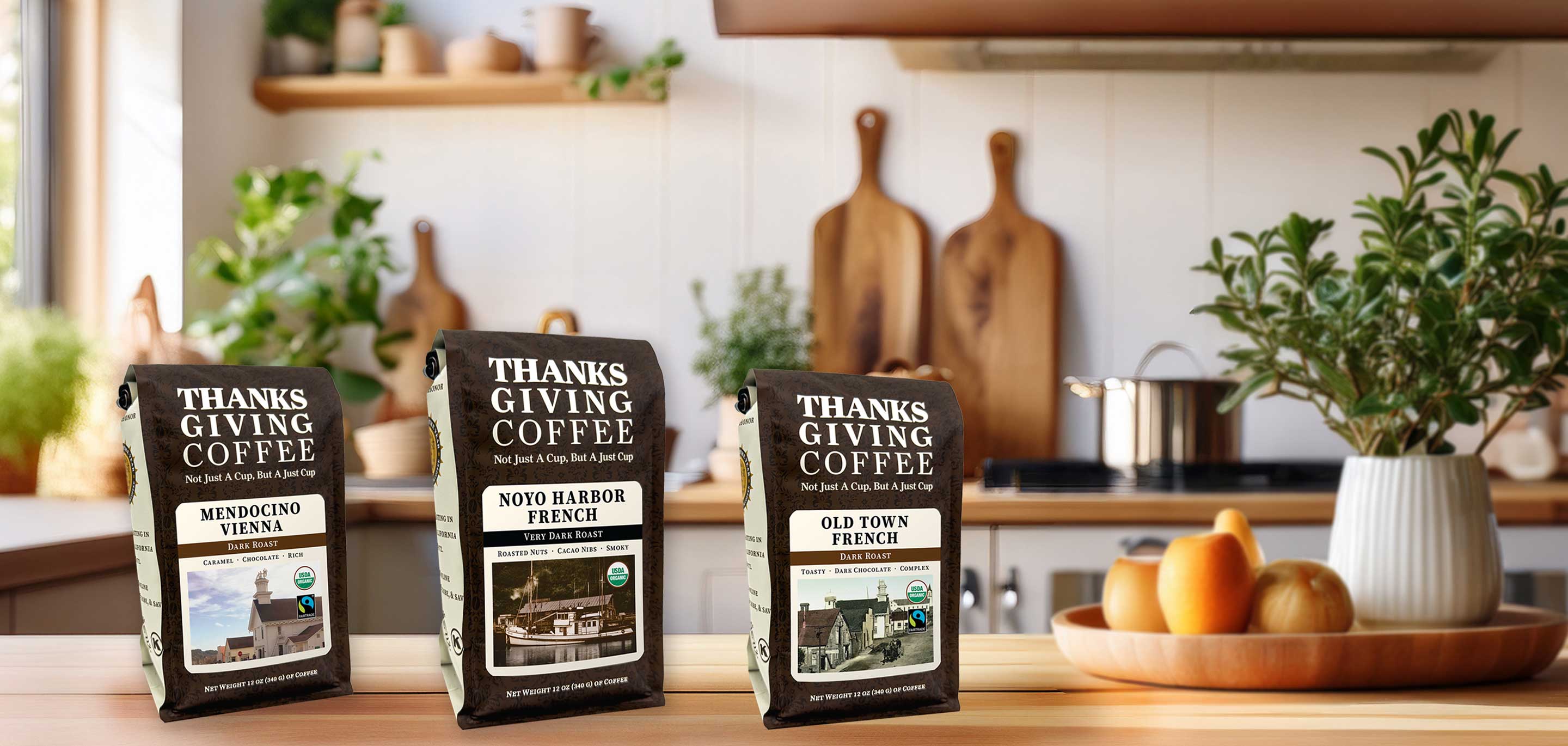
B Corp Coffee Partnerships: Conscious Collaboration
Every first Saturday in July, thousands of people gather at Fort Bragg’s Noyo Harbor for the World's Largest Salmon BBQ—a celebration that’s both festive and fiercely focused on restoration. It's a paradox we embrace: honoring nature by gathering in its name.
This spirit of collective care mirrors how Thanksgiving Coffee approaches sustainable business relationships—especially through our growing network of fellow B Corps.
Grove Collaboratives First B Corp Coffee
When Grove Collaborative chose Thanksgiving Coffee as their very first coffee partner, it marked a significant milestone in our 50+ year journey since founding Thanksgiving Coffee in 1972.
This wasn't just another retail partnership—it represented Grove's recognition of our commitment to ethical coffee sourcing and regenerative business practices.
Grove features our coffee with the tagline: "This bag carries more than artisan coffee—it's a vessel of hope, connection, and giving thanks to the Earth." This partnership demonstrates how aligned values create natural B Corp collaborations that extend far beyond traditional business transactions.
Brewing Local Impact with North Coast Brewing Company
North Coast Brewing Company, our neighbor in Fort Bragg, has been independent since 1988. They have built their reputation on quality craft brewing while maintaining strong community ties.
At the 2024 World's Largest Salmon BBQ, their craft beer complemented our artisan coffee, creating a complete North Coast experience that spotlighted the power of place-based partnership.
Raising the Bar with Bonterra Organic Estates
Our partnership with Bonterra Organic Estates, America's #1 organic winery, represents the gold standard of regenerative agriculture collaboration. They've achieved Regenerative Organic Certification, TRUE Zero Waste status, and B Corp certification—proving that excellence and environmental stewardship flourish together.
Salmon Restoration Through Conscious Commerce
The World's Largest Salmon BBQ demonstrates how conscious business partnerships create measurable environmental impact.
Here are the 2024 Results:
- $60,000 raised for salmon restoration
- $40,000 donated to Trout Unlimited's North Coast Coho Project
- 2,500 attendees supporting sustainable practices
According to the National Oceanic and Atmospheric Administration, these restoration efforts have resulted in over 15,000 adult coho salmon returning to spawn in Mendocino Coast rivers—in waters that hadn't seen coho salmon for 70 years.
Building Systems Evolution
For over 50 years, Thanksgiving Coffee has operated on the principle that coffee is a medium for connection and positive change. Our B Corp partnerships have shown us how this philosophy extends beyond our coffee supply chain to encompass the entire ecosystem of conscious commerce.
When North Coast Brewing brings their craft beer to the Salmon BBQ, when Bonterra contributes their organic wines, when Grove Collaborative features our coffee as a vessel of hope—we create something none of us could achieve alone.
We're not just selling products; we're building a network of businesses that demonstrate another way forward.
The Ripple Effects of Regenerative Partnerships
The numbers tell part of our story, but the deeper narrative is about amplified impact. Every cup of Thanksgiving Coffee that reaches Grove's customers, every moment of connection at the Salmon BBQ, every dollar raised for stream restoration—these represent the ripple effects of partnerships that prioritize shared prosperity over individual gain.
Looking Ahead: A Business Practice of Care
These partnerships didn't emerge from market analysis—they grew from shared values and mutual recognition of what's possible when businesses align their success with the world's wellbeing. Grove chose us because our story resonates with their mission. North Coast Brewing and Bonterra partner with us because we share commitment to place and values.
Together, we create impact greater than the sum of our parts. We've learned that the company we keep shapes not just our success, but our contribution to a more sustainable world. In choosing B Corp partners who share our commitment to restoration and regeneration, we've proven that business can be a practice of care—for the earth, communities, and the future we're creating together.
Lavender Grace is the Sustainability Consultant for Thanksgiving Coffee Company
B Corp Coffee Partnerships: How Conscious Collaboration Drives Environmental Impact
read more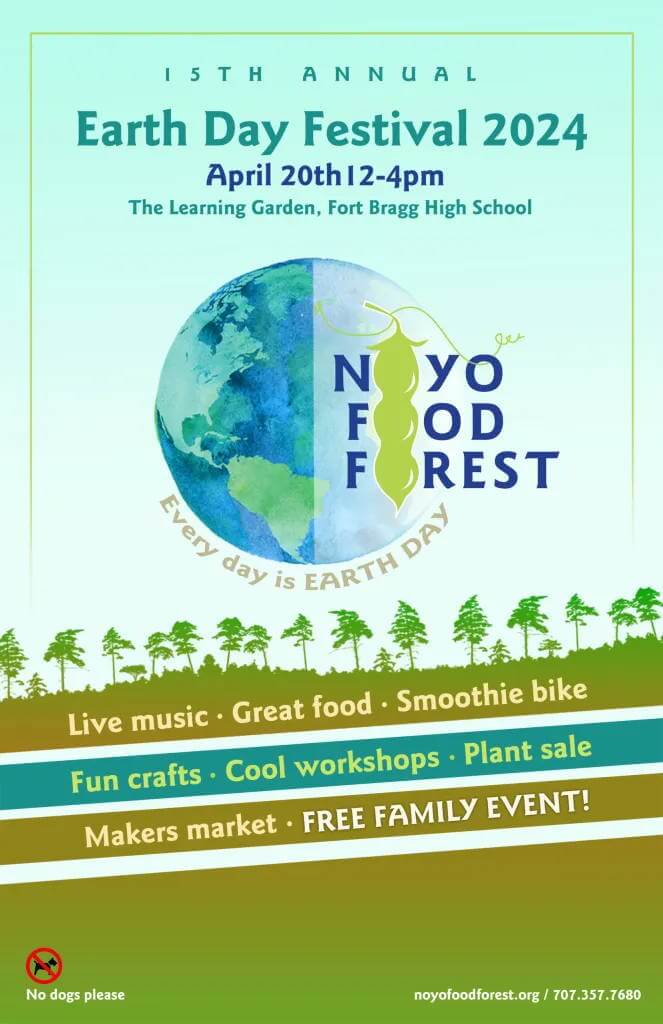
Earth Day Event in Fort Bragg
The Noyo Food Forest is having their annual Earth Day celebration this Saturday at the Learning Garden. This four hour event is a fundraiser for the Farm-to-School and Youth Intern programs that the Noyo Food Forest operates year-round. We partner with the Noyo Food Forest throughout the year, and we especially love being a part of this annual event in Fort Bragg.
15th Annual Earth Day Event
Saturday, April 20, 12 - 4 PM
At the Learning Garden at Fort Bragg High School on Dana Street.
This Earth Day event is free and geared toward everyone in the family. There will be live music, and you can participate by putting down a bid for the silent auction, paying entry to bouncy houses, and tasting goodies from local chefs. This is one of the most fun events that happens in the city of Fort Bragg every year. Local organizations and nonprofits are a big part of this event, and you’ll see booths and representatives from the Noyo Marine Science Center, the Mendocino Land Trust, our Mendocino County state parks and many more important parts of the coastal community.
Thanksgiving Coffee will be serving up samples of our Bee Bold Blend, our new Nitro Coffee, and the Noyo Food Forest will be selling 12oz bags, as well. All the proceeds benefit the Noyo Food Forest and their important work here in our community. We are very happy to be a part of this awesome event. For more information, visit the Noyo Food Forest Earth Day page on their website, and RSVP on Facebook to share with your friends. Join us on April 20 – see you at the Learning Garden.
Thanksgiving Coffee Company
Partnership with the Noyo Food Forest
Learn more about how we support our Mother Earth
Earth Day Event in Fort Bragg 2024
read more
Simplifying to Serve You
The coffee landscape is dramatically different than it was when we began this journey 53 years ago.
In those early days, we built our lineup coffee by coffee — adding blends and single origins as new beans became available and relationships grew. For decades, harvests were plentiful and sourcing was straightforward.
Today, the world of coffee is evolving. Climate shifts, supply chain realities, and changing customer preferences mean we need to be as thoughtful and resourceful as possible to keep doing what we do best: bringing you exceptional coffee with integrity.
Change for the Better
We're streamlining our packaged coffee offerings, starting in September. With a simplified lineup of coffees, we'll focus on the blends and origins we can source consistently, roast with excellence, and deliver to you at the highest possible quality.
By simplifying our offerings, we will:
- Deepen our support for the farmers we work with through more focused purchasing.
- Maintain freshness and quality in every cup we roast.
- Stay nimble in a changing coffee landscape, so we can continue being your favorite coffee company for years to come.
What This Means For You
We know change isn’t always easy — especially when it means saying goodbye to a favorite. But change also creates space for something new.
- Nearly every retiring coffee has a suggested alternative: matched for flavor, roast level, and story.
- All coffees will remain listed on our website, so you can easily find info about alternatives or select a bulk purchase option.
- Cause Coffees: For special details on replacements and recommendations, visit our Cause Coffee page.
- Bulk options: Many coffees will still be available in 5 lb bags, even if they’re not sold in retail-size packaging. We’re happy to share our best practices for keeping coffee fresh in larger quantities.
Find Your Next Favorite Cup
We know you might be wondering, “What will replace my favorite?”
Here’s the list of our retiring coffees with the roasts we recommend in their place — each one carefully matched for flavor, roast, and story.
- ⏳ Albion River Inn Blend → Try Paul’s Blend
- ⏳ Beaujolais Blend → Try Old Town French
- ⏳ Costa Rica → Try Peru
- ⏳ Delicious Peace Dark → Try Mendocino Vienna
- ⏳Delicious Peace Medium → Try Rwanda
- ⏳ Guatemala → Try Song Bird Guatemalan
- ⏳ Hazelnut → Available in 5lb bag
- ⏳ MacCallum House Blend → Try Beaujolais FTO
- ⏳ Mocha Java FTO → Try Mocha Java Classic
- ⏳ Nicaragua → Try Song Bird Nicaragua
- ⏳ Vienna → Try Mendocino Vienna
- ⏳For Cause Coffees →See Cause Coffee Guide

Our Commitment Remains the Same
For over five decades, we’ve been devoted to ethically sourced, artisan roasted coffee — and that will never change. Every decision we make is rooted in our mission:
- Source with integrity
- Roast with care
- Honor the stories behind every coffee bean
Thank you for growing with us, embracing new favorites, and sharing our belief that coffee is more than a drink. It's a daily connection to people, to our planet, and our sense of purpose.
With gratitude since 1972,
The Thanksgiving Coffee Team
You might be interested in...
Lavender Grace is the sustainability consultant for Thanksgiving Coffee Company
Simplifying to Serve You Better: A New Chapter in Our Coffee Journey
read more
Earth Day Event in Fort Bragg
The Noyo Food Forest is having their annual Earth Day celebration this Saturday at the Learning Garden. This four hour event is a fundraiser for the Farm-to-School and Youth Intern programs that the Noyo Food Forest operates year-round. We partner with the Noyo Food Forest throughout the year, and we especially love being a part of this annual event in Fort Bragg.
15th Annual Earth Day Event
Saturday, April 20, 12 - 4 PM
At the Learning Garden at Fort Bragg High School on Dana Street.
This Earth Day event is free and geared toward everyone in the family. There will be live music, and you can participate by putting down a bid for the silent auction, paying entry to bouncy houses, and tasting goodies from local chefs. This is one of the most fun events that happens in the city of Fort Bragg every year. Local organizations and nonprofits are a big part of this event, and you’ll see booths and representatives from the Noyo Marine Science Center, the Mendocino Land Trust, our Mendocino County state parks and many more important parts of the coastal community.
Thanksgiving Coffee will be serving up samples of our Bee Bold Blend, our new Nitro Coffee, and the Noyo Food Forest will be selling 12oz bags, as well. All the proceeds benefit the Noyo Food Forest and their important work here in our community. We are very happy to be a part of this awesome event. For more information, visit the Noyo Food Forest Earth Day page on their website, and RSVP on Facebook to share with your friends. Join us on April 20 – see you at the Learning Garden.
Thanksgiving Coffee Company
Partnership with the Noyo Food Forest
Learn more about how we support our Mother Earth
Earth Day Event in Fort Bragg 2024
read more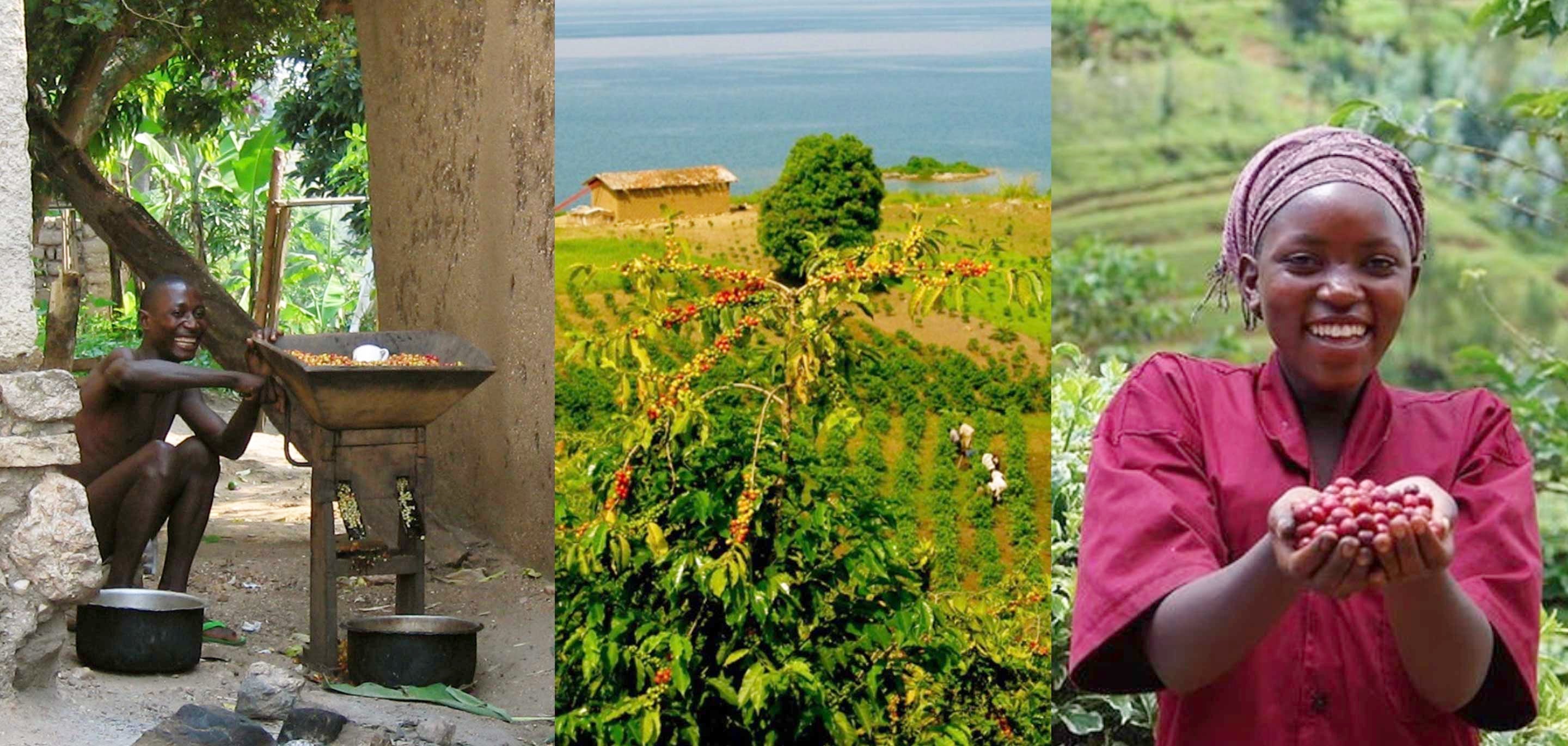
Taste the Bright Future of Coffee
- Tasting Notes: Vibrant citrus, delicate florals, and a smooth honey finish
- Mouthfeel: Silky and refreshing, with a bright, clean finish
- Perfect for: Pour over, drip, or French press—ideal for your morning clarity ritual
Rwanda Single Origin Coffee with citrus, floral, and honey tasting notes from Dukunde Kawa.
Why Dukunde Kawa Coffee Matters
Dukunde Kawa means “Let’s love coffee”—a name that reflects their commitment to people, planet, and flavor. This Rwandan cooperative is internationally recognized for combining exceptional quality with climate action.
- 2,500+ clean cook stoves installed, reducing wood use by 70%
- Tree nurseries restoring biodiversity and combating soil erosion
- Women’s leadership with 80% women participation at the Ruli washing station
Every bag of Rwanda Single Origin supports these impactful programs, making every cup an act of regeneration and reciprocity.
Sources: Dukunde Kawa Sustainability Programs and Thanksgiving Coffee Dukunde Kawa Story
Rwanda Coffee Farm
Brew a Better Morning, Support a Better Future
- Support healthier homes with clean cook stove initiatives
- Restore forests and farms through reforestation efforts
- Empower women farmers, nurturing local leadership
Recipe: Cold Brew for Summer Brightness
- Coarse grind 1 cup of beans
- Steep in 4 cups of filtered water for 12-14 hours
- Serve over ice with a twist of fresh orange peel
Explore More Flavor Stories
Lavender Grace is the Sustainable Ecology Advocate for Thanksgiving Coffee Company
Rwanda Resilience in Every Cup: Coffee with a Climate Impact
read more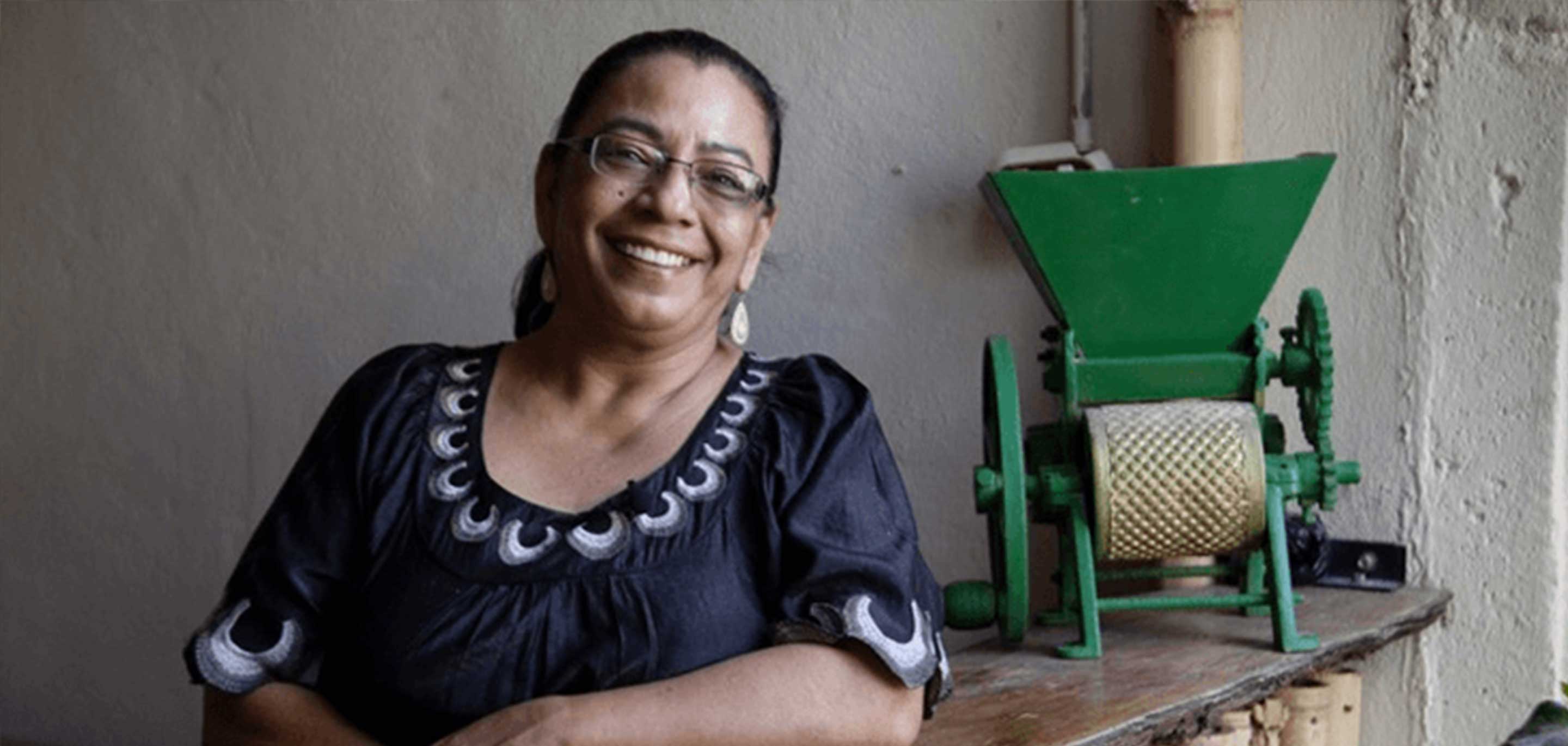
The Story Of SOPPEXCCA: Empowerment Through Coffee
In the verdant highlands of Jinotega, Nicaragua, a revolutionary approach to gender equity is transforming the coffee industry. Led by the visionary Fátima Ismael, SOPPEXCCA cooperative operates on a powerful belief: "Women's independence can only be achieved through economic autonomy and awareness."
"This groundbreaking initiative doesn't just produce exceptional coffee – it creates a model for sustainable economic justice." – Thanksgiving Coffee Company
What makes this partnership unique is SOPPEXCCA's pioneering recognition of women's traditionally invisible contributions to coffee production. This approach addresses a global challenge documented extensively by international organizations including the United Nations.
Fátima Ismael, SOPPEXCCA'S General Manager
The $40,000 Unpaid Work Fund: Valuing Invisible Labor
Since 2013, Thanksgiving Coffee Company has committed an additional $0.10 per pound of green coffee purchased from SOPPEXCCA – specifically allocated to recognize women's unpaid work. This initiative has now generated over $40,000 supporting women's economic empowerment.
The Global Context of Unpaid Labor
According to UN Women research:
- Unpaid care work is essential to functioning economies but often goes uncounted and unrecognized
- Women—particularly from low-income, migrant, and racialized groups—perform more than three-quarters of unpaid care and domestic work globally
- If women's unpaid work were assigned monetary value, it would exceed up to 40% of GDP in some countries
Measurable Impact in Nicaragua
The SOPPEXCCA initiative has created transformative changes for women:
- Improved relationships among women in rural communities
- Increased active participation in economic decision-making processes
- Development of creative potential within family economies
- Financial independence through personal savings accounts
- Growing cooperative membership among women
"8 March ... Day of commemoration and new commitments for a world of equality, equity and respect .. Greetings female producers, friends and companions who have been with this organization on their way that has not been easy but together we have overcome a thousand adversities and will continue to be fighting ..." Soppexcca
Woman Farmers of Soppexcca Cooperative - Jinotego, Nicaragua
Environmental Stewardship Meets Social Justice
Shade Grown Coffee: Critical Habitat for Migratory Songbirds
SOPPEXCCA's commitment extends beyond economic justice. Their shade-grown cultivation methods create essential winter habitats for migratory songbirds, demonstrating how sustainable agriculture directly contributes to biodiversity conservation.
"When you choose SOPPEXCCA coffee, you're supporting both women's empowerment and environmental stewardship – values at the heart of Thanksgiving Coffee Company."
Woman Farmers from the Soppexxcca Cooperative - Jinotega, Nicaragua
The Economic Impact Of Ethical Investment
UN Women's research reveals that investing in care infrastructure creates three times more jobs than equivalent investment in construction, with 70-90% of these jobs benefiting women.
The SOPPEXCCA fund represents precisely this kind of strategic investment.
Read about our support for the women of Soppexcca:
"Recognizing the Value of Womens Unpaid Work".
Celebrate the Women Coffee Farmers of Soppexcca
Try this delicious coffee and support a more balanced and just economy for the women of Soppexcca.
Lavender Grace is the Sustainability Consultant for Thanksgiving Coffee Company.
Women Powering Change: SOPPEXCCA's Revolutionary Approach to Economic Justice in Coffee
read more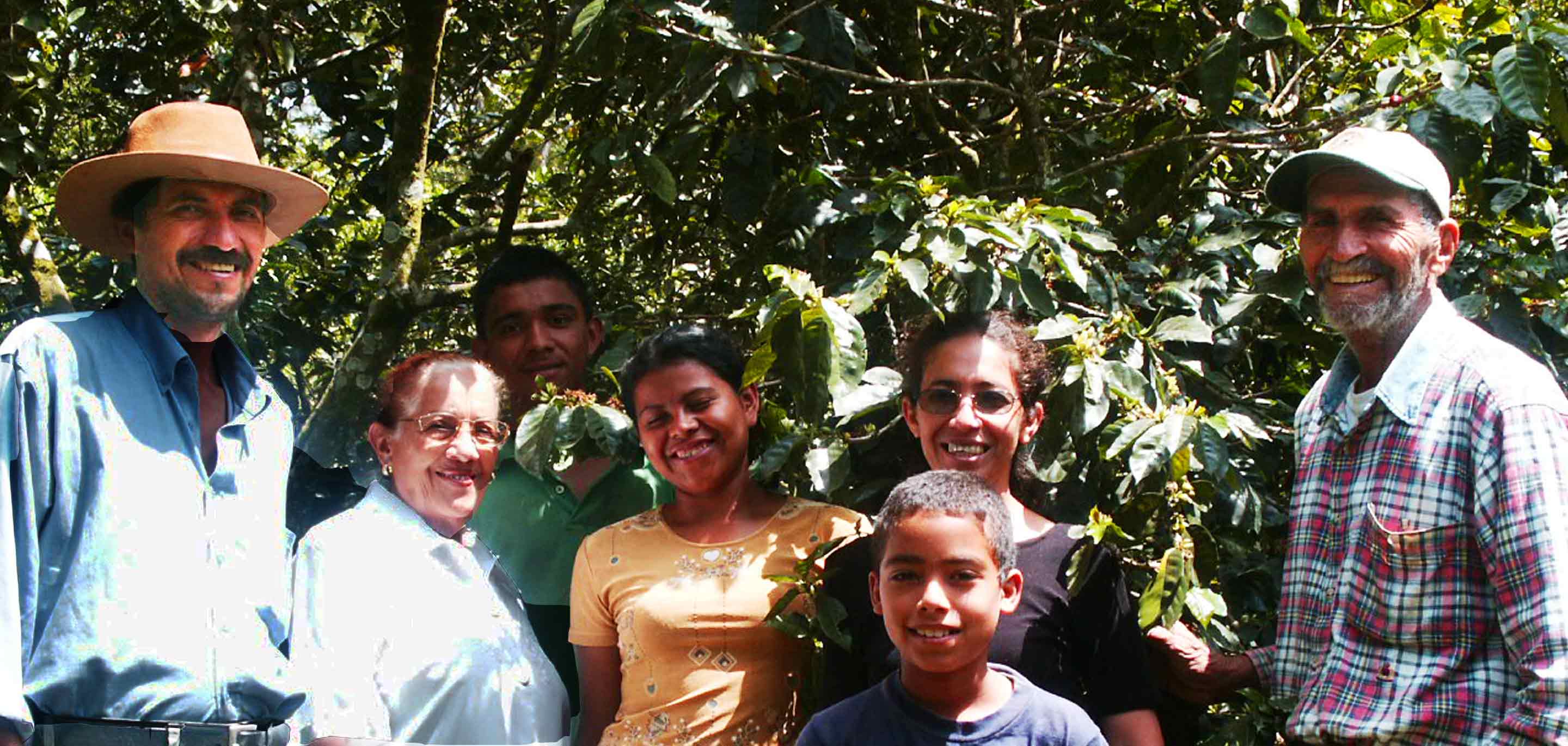
Pioneering Regenerative Agriculture
High in Nicaragua's pristine Arenal Forest Reserve, at 1,500 meters above sea level, Finca los Pinos stands as a testament to agricultural transformation. Here, Byron Corrales and his family have spent over four decades pioneering a different way of farming coffee. Since embracing organic practices in 1986, they've developed an innovative approach that works in perfect harmony with nature. Through their dedication to biodynamic farming, they've not only twice earned top honors for their extraordinary coffee, but they've also created a model for sustainable agriculture that's changing how we think about coffee cultivation.
Sarah Corrales on her families coffee farm
Byron Corrales hugging a tree on his family coffee farm
A Legacy of Excellence
Our relationship with the Corrales family spans three generations, witnessing their evolution from traditional farming to becoming leaders in biodynamic agriculture. Byron's innovative spirit led him to develop the exceptional Maracaturra variety, a unique hybrid that produces remarkably large beans – distinctively bigger than typical Arabica coffee beans. This size isn't just for show; it allows for exceptional taste elements that smaller beans simply cannot achieve, delivering a remarkable sweetness and richness in every cup.
Benita Corrales, Byron's mother
The first meeting with Thanksgiving Coffee Company in 1992- Left Byron Corrales, Right Arnulfo Corrales
Arnulfo Corrales, Byron's father
Left to right - Thanksgiving Coffee's Co-Founder Paul Katzeff, Byron Corrales, and Nick Hodgkins (Etico -The ethical trading company)
the Art Of Processing
Byron with drying natural Maracaturra coffee beans.
Corrales' artisanal approach to processing begins long before the cherries reach the beneficio (drying patio). On his farm, every element serves an integral function in creating exceptional coffee. This includes the carefully selected forage crops sustaining his cattle, whose manure enriches the compost used around the coffee trees, as well as the diverse pollinators - from honeybees to other beneficial insects - that support optimal cherry development.
For Corrales, successful coffee processing stems from creating a balanced, thriving ecosystem that produces the highest quality cherries possible for processing. This foundation of environmental harmony directly influences the clarity and complexity of his final cup.
The Natural process is when the coffee cherries are dried whole, without removing the pulp or using water or machines, and has become Byron’s preferred method for many reasons, as he explained in this video. It is a very good choice to reduce the use of fossil fuels and for water conservation, as well as the added antioxidant health benefits.
The Living Systems Of Los Pinos
At Finca los Pinos, every element serves multiple purposes in an intricate dance of mutual support:
- Native and planted trees provide essential shade and soil health
- Free-ranging cattle contribute to natural fertilization cycles
- Coffee cherry pulp (cascara) is recycled into nutritious cattle feed
- Birds and beneficial insects maintain natural pest control
- Pine trees create unique conditions that enhance both soil and coffee quality
Los Pinos coffee farm looking out over the forest
Soil: The Foundation of Life
Byron Corrales with his hands full of soil
Byron's approach to soil health demonstrates the core principles of regenerative agriculture. "The farmers that produce with agrochemicals and herbicides destroy the life of the soil," he observes. "We protect it." This protection includes:
- Maintaining ground cover to retain moisture
- Supporting microorganism and mycorrhizal networks
- Using natural fertilization methods
- Working with, rather than against, natural processes
“I feel really happy that those who drink my coffee are drinking a cup of life”
Byron Corrales
Climate Resilience Through Diversity
Great video produced by Viva La Finca - Virtual origin experience - Byron Corrales of Finca Los Pinos
Understanding the challenges of climate change, Byron has implemented robust adaptation strategies:
- Diverse tree species for enhanced shade coverage
- Strengthened soil biology
- Natural mineral enrichment
- Water conservation systems
The Unique Maracaturra Experience
This regenerative approach culminates in the cultivation of Maracaturra, a special variety found only at Finca los Pinos. This unique hybrid of Maragoype and Caturra (Bourbon) produces a truly exceptional coffee with:
- Juicy apricot aromatics
- Rich cashew nuttiness
- A deeply toned sweet cacao finish
- Remarkable sweetness unique to the large bean size
- Complex flavor elements impossible to achieve with conventional varieties
A Vision for the Future
"I want to transmit our family's art, our work of many years, discovering the flavors we've learned to bring forth from our mountains, expressed in this cup by way of respect for our environment," Byron shares. This respect for environment and commitment to regenerative practices creates coffee that is, in Byron's words, "the expression of life and the life energy of all the living beings who live in our community."
The Corrales Family from one of our origin trips.
Each cup of Byron's coffee embodies a powerful truth: regenerative agriculture can produce extraordinary coffee while healing the earth.
Our Byron's Blend is where ancient farming wisdom meets modern artistry. By masterfully combining washed and natural processed Maracaturra coffees, we create a harmonious cup that showcases the finest expressions of both methods. The result is more than a blend – it's a testament to coffee craftsmanship at its peak.
As Byron himself reminds us with characteristic wisdom: we are "celebrating with joy the responsibility of protecting the future of our generations." In every sip, you taste that promise.
Lavender Grace is the Sustainability Consultant for Thanksgiving Coffee Company.
